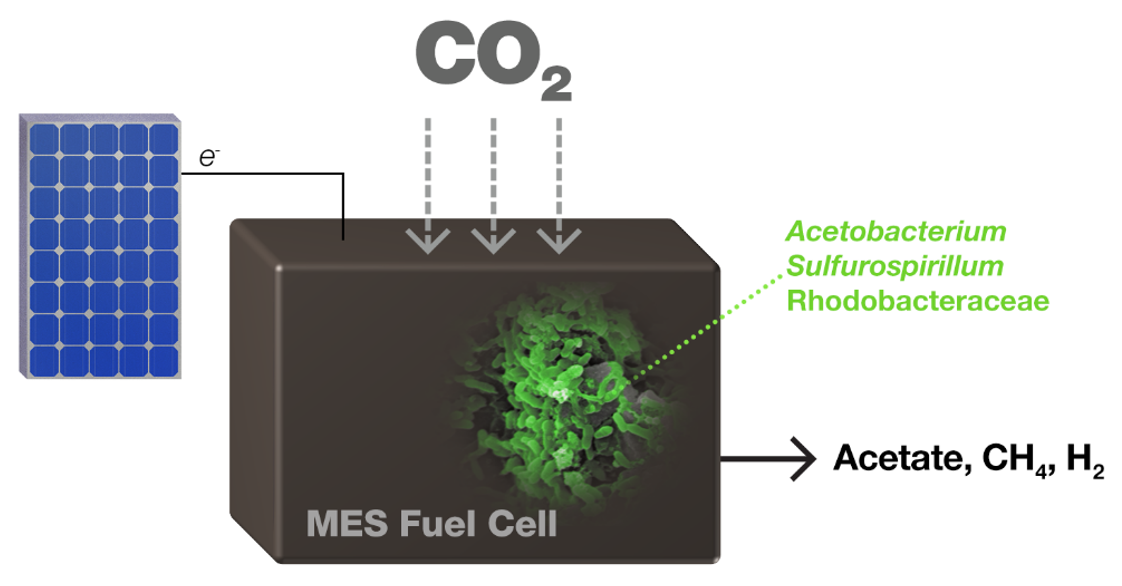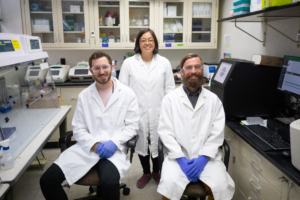 Many product streams in the energy industry, such as carbon dioxide or syngas, are either considered waste or have not yet been utilized to full potential. Microorganisms can biocatalyze these carbon outputs into value-added products, increasing the efficiency of power generation. However, this type of biotechnology has not yet been fully developed to be integrated into existing infrastructure.
Many product streams in the energy industry, such as carbon dioxide or syngas, are either considered waste or have not yet been utilized to full potential. Microorganisms can biocatalyze these carbon outputs into value-added products, increasing the efficiency of power generation. However, this type of biotechnology has not yet been fully developed to be integrated into existing infrastructure.
Several R&D challenges exist for the development and deployment of biological carbon conversion technologies, including (1) growth and enrichment of efficient biocatalysts capable of economical CO2 conversion rates, (2) growth and enrichment of efficient biocatalysts capable of economical intermediate conversion rates, (3) optimization of media conditions and reactor process design, and (4) the evaluation of biological CO2 conversion technologies for scalability potential and current process integration.
NETL is currently optimizing a biocatalyst development from a coalbed mix microbial community that is capable of converting a variety of single carbon compounds into multi-carbon compounds. This research develops strategies to increase the economic feasibility carbon upgrading from energy product streams, introducing a new commodity market to the energy industry.
NETL News
NETL Innovation Efficiently Converts CO2 Into Acetate For Use In A Variety Of Popular Products

NETL researchers have developed a biocatalyst with 99% efficiency that can convert carbon dioxide (CO2), a waste product of fossil energy industries that warms the planet and causes climate change, into acetate — an ingredient used in many products like cleaning supplies, textiles, and as a potential feedstock for biofuels.
Deployment of carbon management technologies is crucial to addressing the climate crisis and meeting the administration’s goal of a net-zero greenhouse gas emissions economy by 2050 while protecting existing industrial jobs and creating new ones. Biological conversion of CO2 is an attractive option to reduce carbon emissions and accelerate work toward a carbon-neutral economy.




